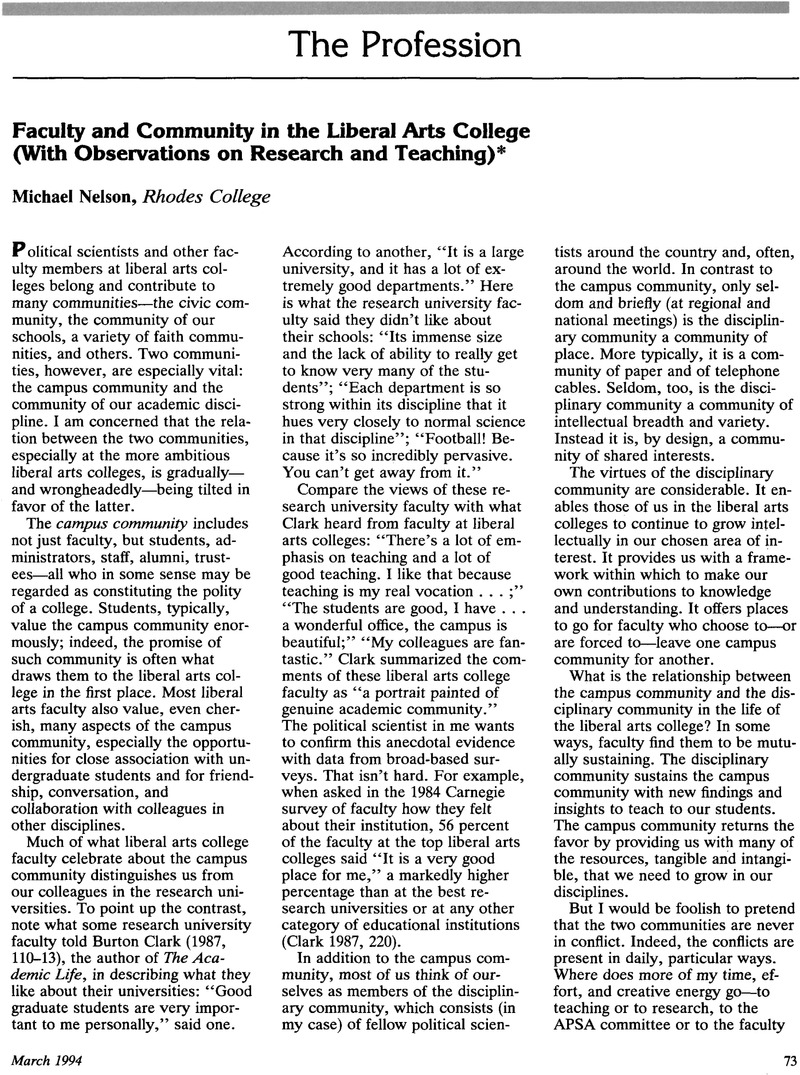No CrossRef data available.
Published online by Cambridge University Press: 02 September 2013

This essay was adapted from my Founders' Convocation address at Rhodes College in September 1993. I owe much to the comments and criticisms of several Rhodes colleagues and gratefully acknowledge my debt to them: Gail Corrington-Streete (religious studies), Dan Cullen (political science), Harmon Dunathan (dean), Mehran Kamrava (international studies), Larry Lacy (philosophy), Cynthia Marshall (English), Jim Vest (French), Valarie Ziegler (religious studies), and, especially, Kenny Morrell (classics).